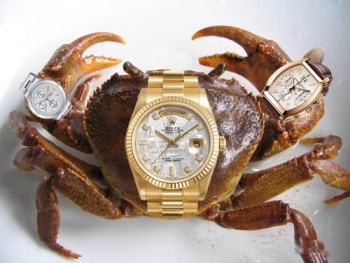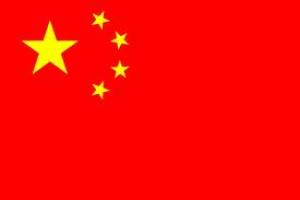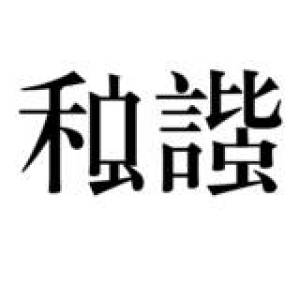“River crab”的版本间的差异
来自China Digital Space
| 第19行: | 第19行: | ||
[[File:china flag.jpg|300px|thumb|right|''Flag of the People's Republic of China.'']] | [[File:china flag.jpg|300px|thumb|right|''Flag of the People's Republic of China.'']] | ||
| + | |||
[[File:river crab2.jpg|500px|thumb|center|''The word “harmonious” written in Chinese—various components have been modified to resemble the radical used in the word “crab.”'']] | [[File:river crab2.jpg|500px|thumb|center|''The word “harmonious” written in Chinese—various components have been modified to resemble the radical used in the word “crab.”'']] | ||
[[Category: Grass-Mud Horse Lexicon]] | [[Category: Grass-Mud Horse Lexicon]] | ||
2012年8月14日 (二) 19:48的版本
河蟹 (héxiè): river crab
The Chinese government often uses its goal of constructing a “harmonious society” (和谐社会 héxié shèhuì) as a justification for censorship. Chinese netizens began to use “harmony” as a euphemism for censorship. “River crab” (héxiè) sounds nearly the same in Chinese as “harmonious” (héxié).
“River crab” can also be used as a verb. Instead of saying something has been censored, one might say “it has been harmonized” (被和谐了 bèi héxié le) or “it has been river-crabbed” (被河蟹了 bèi héxiè le).
A “crab” is also a bully.
In the context of Chinese Internet mythology, the river crab (censorship) threatens the habitat of the grass-mud horse (symbol of online deviance). For a famous YouTube video that illustrates this, see here.
<feed url="feed://chinadigitaltimes.net/china/river-crabs/feed/" entries="5">
[{PERMALINK} {TITLE}]
{DATE}, by {AUTHOR} </feed>








